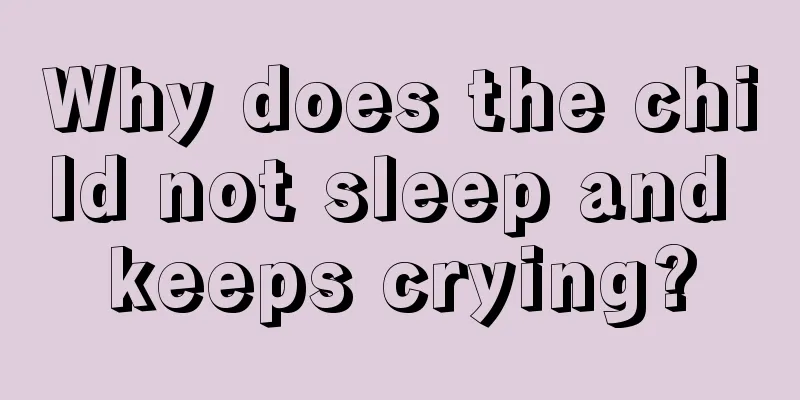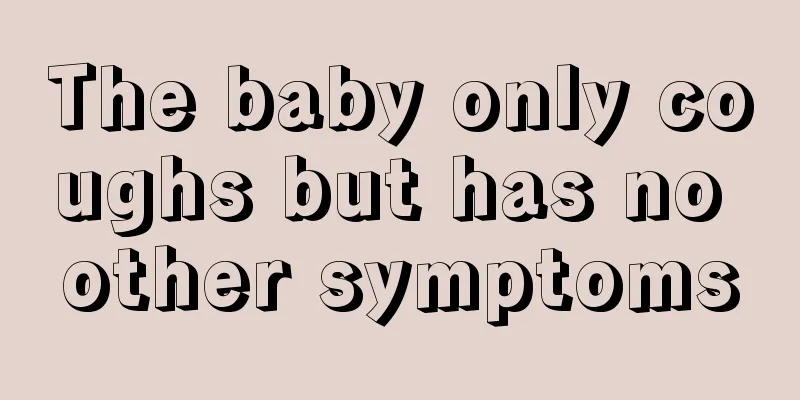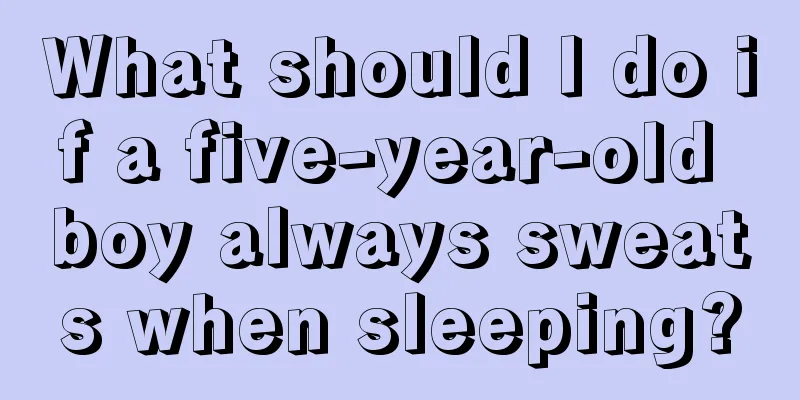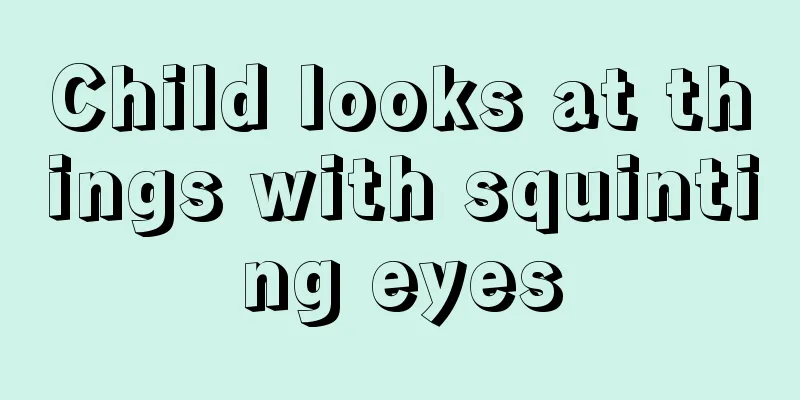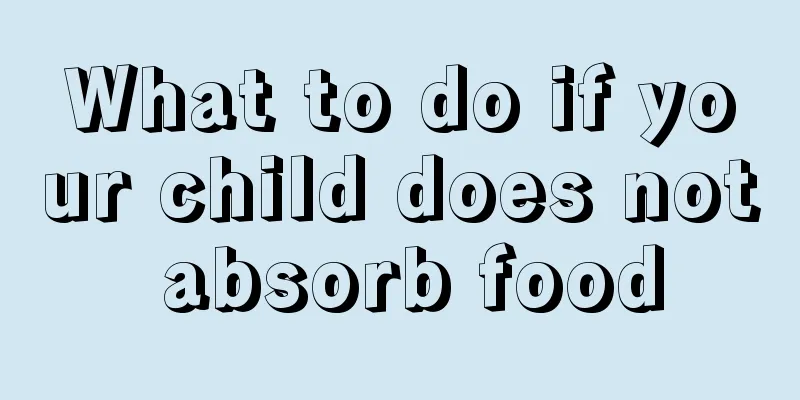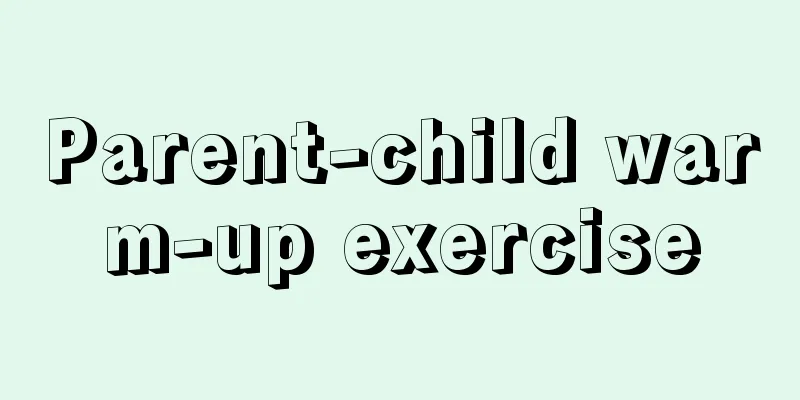What should I do if my child has a fever and feels cold?
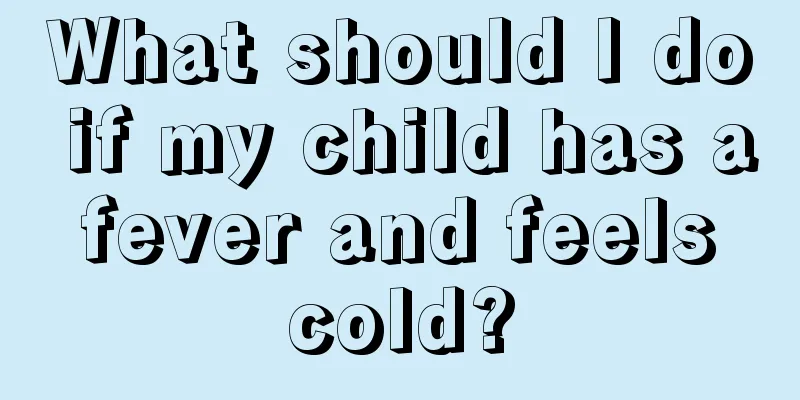
|
For mothers, a common thing is the baby's fever. Many mothers feel distressed when they see their baby crying with a fever and don't know what to do. Moreover, the baby's fever is at 37.5-38.5℃. With such a high temperature, why are the baby's hands and feet cold? Why does the baby feel cold sometimes? What is the reason for this? As parents, what emergency measures should we take? Why are the baby's hands and feet cold when the baby has a fever? Having a fever but cold hands and feet is a phenomenon of false cold and true heat, which is especially common in infants and young children under 3 years old. This is mainly because babies (especially infants) have less blood in their limbs than in their internal organs. Due to insufficient blood supply to their limbs, they are more likely to feel cold than adults. In addition, the baby's nervous system is not yet fully developed, and the autonomic nerves responsible for managing vasodilation and contraction are prone to disorder, causing the small blood vessels at the ends of the limbs to be in a spasmodic contraction state and become cold when the high fever first occurs. On the other hand, ambient temperature is also one of the reasons why babies have cold hands and feet. Because the baby's central nervous system is not yet fully developed, the ability to regulate body temperature is imperfect. If the ambient temperature is low, the baby's hands and feet will be cold because their hands are exposed to the outside for a long time. Warning: Do not cover your baby's hands and feet if they have a fever and are cold As soon as the baby has a fever, parents will cover the baby tightly, dressing him in "three layers inside and three layers outside", making him look like a steamed dumpling. Some mothers say that their children are very afraid of cold when they have a fever. Some say that wearing thicker clothes is to cover up sweat, and the child’s fever will go away once he sweats. Children's sweat glands are underdeveloped, so it is not easy to achieve the purpose of "sweating" by "covering up the sweat". For children, the more they are covered, the higher their body temperature will be, which can easily cause "heat syndrome" (that is, children will have a series of symptoms such as high fever, pale complexion, poor reaction, and difficulty breathing due to covering too tightly), and it can also easily induce high fever convulsions. Experts say that when children have a high fever, their limb circulation often deteriorates, and their hands and feet do not feel hot but rather cool. If the baby has cold hands and feet, is afraid of wind, and likes to snuggle in his mother's arms, he may soon develop a fever. Therefore, parents should not assume that their children’s hands and feet are cold because they are not dressed enough. How to take care of cold hands and feet when the body is hot? Hot water foot bath Soaking your feet can promote blood circulation and relieve discomfort. Another benefit of soaking your baby's feet when he has a fever is that it can help reduce the temperature. You can use a large basin or a small bucket for foot soaking. Pour 2/3 of the basin with water. The water temperature should be slightly higher than usual, around 40 degrees Celsius, and it should be based on what the baby can adapt to. When soaking the baby's feet, the mother can rub the baby's two little feet, which can not only dilate the blood vessels but also relieve the discomfort caused by fever. 35% alcohol bath Alcohol can dilate blood vessels and take away a lot of heat when it evaporates, which can help cool down infants and young children when they have a fever. Prepare 100 ml of 75% alcohol, add an equal amount of warm water, and keep the temperature at around 27-37 degrees Celsius. Do not let it be too cold, otherwise it will cause muscle contraction, causing the temperature to rise again. When using alcohol bath, use a small towel to wipe the baby's neck from top to bottom, using a patting method. The areas on the body surface where large arteries and blood vessels are abundant in the groin and fossa should be rubbed until the skin turns slightly red, which helps to reduce body temperature. Be careful not to rub the baby's chest, abdomen, and soles of the feet to avoid causing adverse reactions. Warm water bath Taking a bath can help dissipate heat. If your baby is in good spirits when he has a fever, you can give him more baths and adjust the water temperature between 27 and 37 degrees Celsius. Be careful not to give your baby a hot bath, otherwise it will easily cause vasodilation throughout the body, increase oxygen consumption, easily lead to ischemia and hypoxia, and aggravate the condition. Sometimes, a baby's cold limbs are actually another manifestation of internal heat. Mothers should not blindly assume that the baby has caught a cold and wrap the baby tightly, as this will prevent the internal organs from dissipating heat and will instead make the body surface temperature higher. At this time, you can let your baby drink a cup of hot water and observe the changes in body temperature. Don't rush to take heat-dissipating medicine when the temperature is not high. It is best to use physical methods to reduce fever first. If there are any abnormal conditions, go to the hospital in time. |
<<: What should I do if my child has a cold, fever, and headache?
>>: What should I do if my child suddenly has a fever in the middle of the night?
Recommend
What causes swollen eye bags in children?
Generally speaking, some older people are prone t...
After reading this, do you still dare to let your children wear open-crotch pants?
I don’t know which genius invented open-crotch pa...
What to do about neonatal necrotizing colitis
The word "newborn" attracts much attent...
How old can babies eat kiwi fruit?
Kiwi fruit has a very high sugar content, so it i...
What to do if a child has a persistent high fever
When a child has a high fever, it is necessary to...
How many days should I take anti-inflammatory medicine for a minor surgery?
Some girls go to the hospital for abortion after ...
What are the early symptoms of sepsis in children?
Sepsis in children can cause great harm to their ...
What are the advantages and disadvantages of honey for children
Many adults are drinking honey, but I don’t know ...
What should I do if my child can’t stop nose bleeding?
When a nosebleed occurs, many people will tilt th...
Stool color and precautions for mixed-feeding babies
The color of the stool of babies who are mixed-fe...
What's wrong with the blue veins on the nose bridge of a one-year-old baby?
Many people have different opinions about the blu...
When is it appropriate for babies to use pillows?
Adults use pillows when they sleep, but for babie...
What should I do if my child has low white blood cell count and high fever?
Spring is the peak season for influenza, and cold...
How long does it take for children's myositis to recover?
Myositis is a disease that children are very like...
What to do about malnutrition in children?
A long, long time ago, because medical technology...
